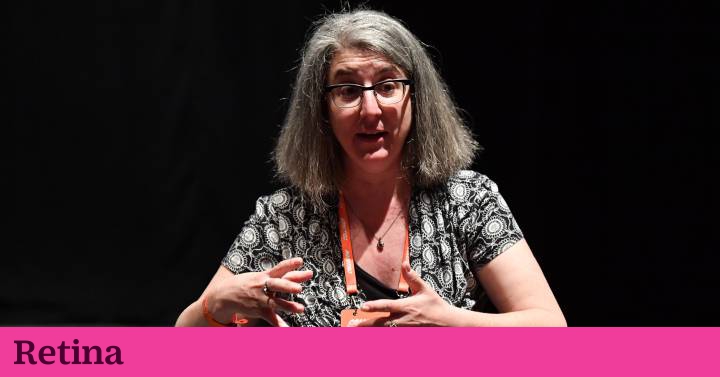FOLLOW
Follow
From Or Lechner's point of view, internet data collection tasks are not very different from fishing activity: “If a fisherman damages the environment in any way, perhaps by hunting too many fish in too little time, it will hurt himself and the rest of the fishermen.
In the next season they will not be able to go out fishing ”, explains the founder of Luminati, a startup that prides itself on fishing data ethically, during his speech at WebSummit, which is being held these days in Lisbon and virtually.
"If we damage the ecosystem, the entire industry will be damaged."
The event, considered the largest in the world in the technology sector, is being a trickle of experts who warn of the risks that it would entail if the same idiosyncrasies continue to reign in this industry.
“The question is not who has your data.
It's who controls them, ”reasons Cindy Cohn, CEO of the Electronic Frontier Foundation.
"Most of the time, we have our data, but we are not in control: we can lose it with a single click."
For Cohn, who specializes in digital rights, regaining that domain requires being able to go beyond clicking on a deal.
"You have to change some rules and some ways in which the industry is built."
Lenchner is committed to a different approach to the way of making decisions.
His little test to know when he is acting ethically in his business is "eliminate the money factor": "Think that you are not going to win anything, but you are not going to lose money either and everything becomes much more obvious".
In his opinion, this position guarantees coherence in the way of acting, even if it is in an international market: "For the ethical there are no borders. You cannot decide to be ethical in one continent and not in another. When you have a standard you are not bound to a country: it is global. "
Cohn, for his part, advocates a change that must also come from outside.
"We have to combine this with laws and policies that free up that space," he says.
The leader of the Electronic Frontier Foundation, which this year celebrates three decades defending freedom of expression and digital privacy, is optimistic about the emergence of companies that present themselves as alternatives to big technology and defend other practices.
But he knows that change will come slowly.
"There is an effort to create alternatives in almost all spaces, but I don't think they will be able to compete with large companies," he admits.
His recipe for the slow transformation of this ecosystem, passes through the interoperability of both platforms, so that the user can use the parts that interest him in each one, without having to register in all its services and accept the conditions that these imply.
“If I want to go to Facebook just to talk to my grandmother and I don't want the rest of my social network to be there, I should be able to.
There are countless technological ways to do this.
But the ecosystem prevents this ”.
His advice for companies looking to find a place in the shadow of the giants of the digital age is to support these avenues of "competitive compatibility", so that users can decide to approach them without making big sacrifices.
"Someone is going to eat those big guys' lunch. It may take a while, but better be prepared, because it is going to happen."
The European Chapter
In fact, Facebook made headlines for the umpteenth time in recent months as a result of Ireland's demand that the platform stop transfers of personal data from European users.
According to Helen Dixon, commissioner of the Irish data protection department, during her intervention in WebSummit, this order is based on European data protection laws, which establish that data cannot leave the region, unless it is transferred to a third country that ensures equivalent protection.
There's a solution?
Will Facebook have to bring its servers to Europe?
Will you choose to leave the region?
Dixon believes that all parties involved should work to find a viable scenario that also clears the way for other companies that may be in the same situation, and speaks of two opposing positions.
One half argues that it is simply necessary to reform US surveillance and privacy laws, and the other says that the European Union is setting the bar so high that it will end up as an island in which the demands are simply too high for companies to keep operating.
“Wherever the reality is between these two positions, what is very clear is that the solution will not come from companies or from data protection authorities like my department.
The solution can only come from the regulators ”.



/cloudfront-eu-central-1.images.arcpublishing.com/prisa/YOFFNRYVHNGMDF6W5JWCJXYV5I.jpg)











